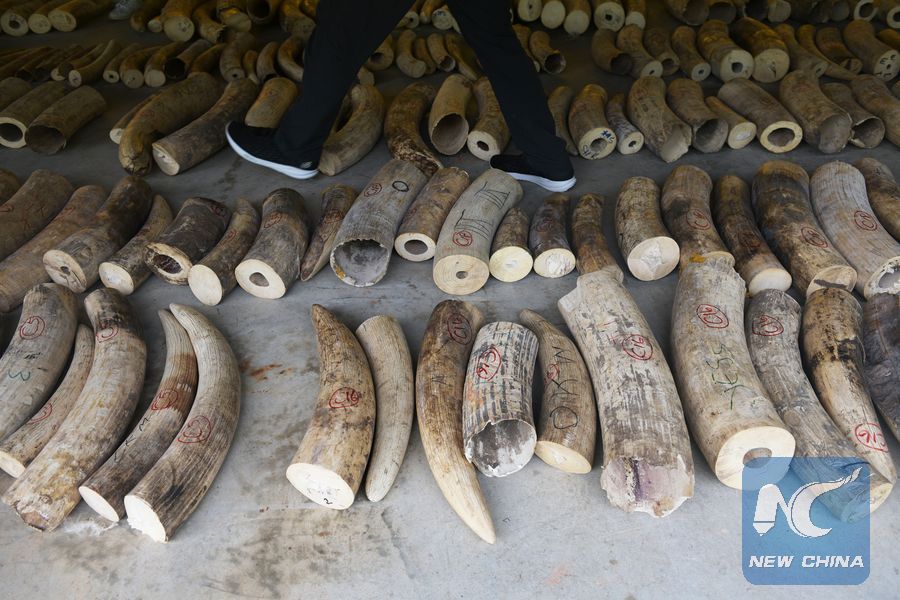
Photo shows the seized elephant ivory in Singapore on July 23, 2019. (Xinhua/Then Chih Wey)
SINGAPORE, July 23 (Xinhua) -- Singapore has recently seized 8.8 tonnes of elephant ivory, the largest of its kind so far, according to a joint statement issued here Tuesday.
The ivory were found on Sunday when the Singapore National Parks Board worked with Singapore Customs and the Immigration and Checkpoints Authority to inspect a shipment from the Democratic Republic of the Congo to Vietnam.
In one of the three containers which were said to contain timber according to the bill of lading, 8.8 tonnes of elephant ivory estimated to be worth 12.9 million U.S. dollars were unveiled. This is the largest seizure of elephant ivory in Singapore to date.
The inspectors also found 11.9 tonnes of pangolin scales which were estimated to be worth about 35.7 million U.S. dollars.

Photo shows the seized pangolin scales and elephant ivory in Singapore on July 23, 2019. (Xinhua/Then Chih Wey)
In this particular case, China's General Administration of Customs had shared information that enabled the Singapore agencies to successfully seize the pangolin scales and ivory, the statement added.
With this seizure, Singapore has seized a total of 37.5 tonnes of pangolin scales since April this year.
Singapore seized 177 kg of cut-up and carved elephant ivory in April.
Singapore is a signatory to the Convention on International Trade in Endangered Species of Wild Fauna and Flora (CITES) and elephants and pangolins are protected species under CITES.
"These latest seizures are testament to Singapore's commitment to the global effort to stem illegal trade in CITES-listed species, including their parts and derivatives. The seized pangolin scales and elephant ivory will be destroyed to prevent them from re-entering the market," said the statement.
Under the Endangered Species (Import & Export) Act, the maximum penalty for illegal import, export and re-export of wildlife is a fine of up to 500,000 Singapore dollars (about 366,569 U.S. dollars) and/or two years' imprisonment. The same penalties apply to transit or transhipment of CITES-listed species of wildlife, including their parts and derivatives, according to the statement.

